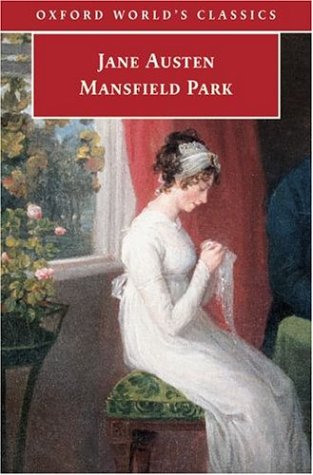I have a new essay out in The Brooklyn Rail this morning, the upshot of an epic obsession, which has riddled my writing style with semicolons and taught me the value of plot triangles. Much gratitude to Wayne Hankey for his marvelous essay “Conversion: Ontological & Secular from Plato to Tom Jones (NC, July, 2014),” which introduced me to the word “kenotic” in regard to Fanny Price, to Laura Michele Diener, who taught me the meaning of “apophatic,” and to Jacob Glover for talking me through the ins and outs of absolutist ethics. You see, it was very much a Numéro Cinq co-production, though the obsession was all mine.
Here’s the closing section. Read the rest at The Brooklyn Rail.
What is truly paradoxical in Mansfield Park is the way it reaches beyond its satire on the marriage customs of Regency England, beyond the conventions of the romantic comedy, and beyond even its theological torque to tell a very modern story about the construction of a self. Much like Wolf’s Christa T., Fanny forges her self not in any positive way but in resisting imperatives, the forms imposed on her by her society and the gaze of the individuals around her. She is not simply a passive character; she is symbolic, fused with theme. I don’t want to, I can’t act, I won’t do that—Fanny Price’s refrain. She defines what action is by not acting. She defines morality by refusing to act.
The climax of Fanny’s non-plot is the sequence of scenes after the ball when she steadfastly persists in refusing to marry Henry Crawford. The fact that she cannot tell anyone that she loves Edmund, least of all Edmund himself, who is obstinately smitten with Mary, makes her appear irrationally stubborn. She remains cagey about her distrust of Henry. She can’t tell Sir Thomas about it at all; she confides in Mary (discreetly) and Edmund (explicitly), but Mary passes Henry’s flirtations off as harmless, and Edmund, too, minimizes Henry’s faults and suggests that time will prove his constancy (weasel words).
Above all, Fanny cannot escape their watchful, measuring eyes. Fanny is alternately cajoled, coerced, bludgeoned, and sent into exile, but she remains true to her principles. She is the poor, underclass cousin who has never stood up for herself before; but in these chapters she asserts herself against every authority, including the wishes of the man she loves. She even makes a speech (unique for Fanny) in which she enunciates what might be called the novel’s quintessential moral (in a novel full of moral discrimination).
“I should have thought,” said Fanny, after a pause of recollection and exertion, “that every woman must have felt the possibility of a man’s not being approved, not being loved by someone of her sex, at least, let him be ever so agreeable. Let him have all the perfections in the world, I think it ought not to be set down as certain, that a man must be acceptable to every woman he may happen to like himself. (292)
This speech reads like a feminist call to arms; those sentiments certainly existed. It asserts Fanny’s right of self-determination, and in the context of the novel, this radical selfhood stands against the ubiquitous dogma of property, propriety, income, estates, inheritance, class, and rank. By extension, it claims for any individual the right of refusal in the face of what the world offers. The basis of self is apophatic: the ability to say, I am not that, and I am not that either. What the world offers is contingent, mired in circumstance, calculation, and history, rated by pre-existing discourses (habits, traditions, forms). The soul proceeds by denial. Its struggle is less a matter of knowing itself as essence than of knowing when it is not itself. Sorting and discarding the trivia of life is the existential duty of the modern.
That Fanny (and the novel) can’t quite live up to this transcendent declaration is a sign of the tension that exists between Austen’s inspiration, the time in which she wrote, and her preferred genre, the romantic comedy. Fanny must marry Edmund Bertram despite the fact that as Edmund himself concedes, she is “too good for him.” Even the narrator is only dimly celebratory about the upshot.
With so much true merit and true love, and no want of fortune and friends, the happiness of the married cousins must appear as secure as earthly happiness can be.
This passage is sometimes construed as Austen’s ironic commentary on the romance genre or the institution of marriage. But we must wait another 150 years for a manifest critique of that ending in the form of John Fowles’s novel The French Lieutenant’s Woman in which the author offers readers the possibility, among others, that the disgraced, impoverished, abandoned female lead might continue to exist on her own and even prosper. When her lover finally appears after a gap of years, she remains cool, aloof – inviolable; she has her own life and no need of rescuing by a man.
